Some things we have only as long as they remain lost, some things are not lost only so long as they are distant
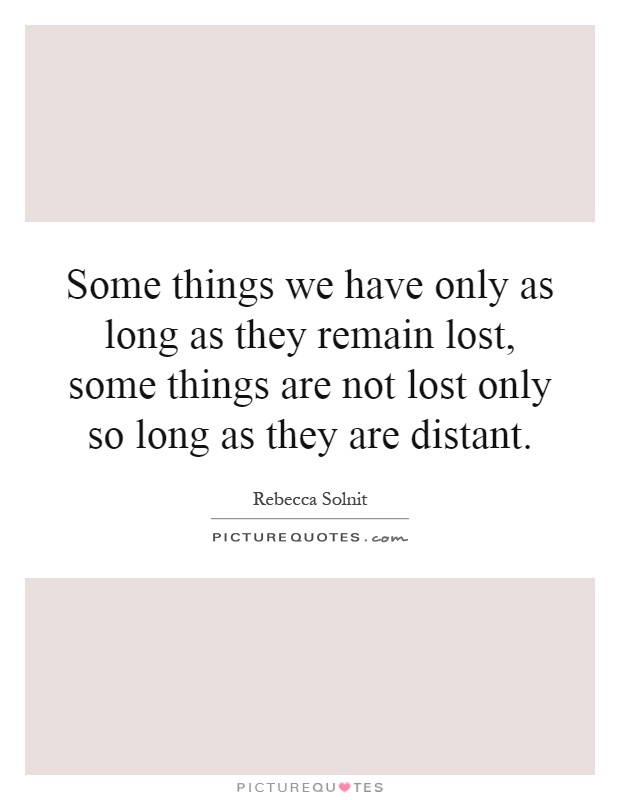
Some things we have only as long as they remain lost, some things are not lost only so long as they are distant
In her book "A Field Guide to Getting Lost," Rebecca Solnit explores the concept of loss and distance in a profound and thought-provoking way. The quote "Some things we have only as long as they remain lost, some things are not lost only so long as they are distant" encapsulates the essence of Solnit's exploration of the complexities of human experience and the nature of existence.Solnit suggests that there are certain things in life that we can only truly possess or appreciate when they are lost to us. This idea challenges our conventional understanding of loss as something negative or undesirable. Instead, Solnit invites us to consider the possibility that loss can be a source of growth, transformation, and even liberation. When we lose something or someone, we are forced to confront our own vulnerability and impermanence, which can lead to a deeper appreciation of what we have and a greater sense of gratitude for the present moment.
On the other hand, Solnit also suggests that there are things in life that are only meaningful or valuable to us when they are distant or out of reach. This could refer to physical distance, such as a faraway place that holds a special significance for us, or emotional distance, such as a relationship that is kept at arm's length. In both cases, the distance serves to heighten our longing and desire, creating a sense of mystery and allure that would be lost if the object of our desire were to become too familiar or accessible.
Solnit's exploration of loss and distance challenges us to reconsider our assumptions about what it means to possess or lose something. By embracing the uncertainty and ambiguity of life, we can learn to appreciate the beauty and complexity of the world around us, even in the face of loss and longing. Ultimately, Solnit's words remind us that it is often in the moments of loss and distance that we discover the true depth and richness of our own experience.
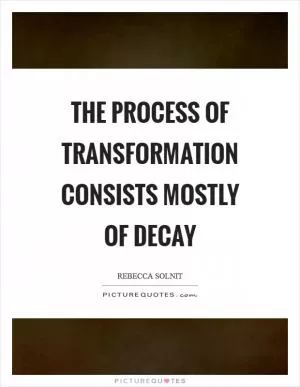
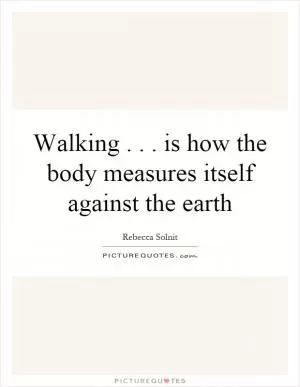
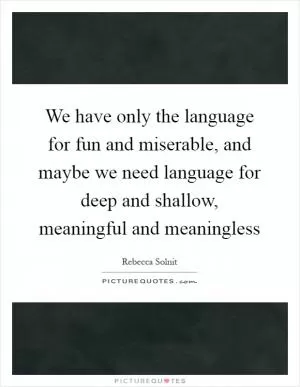
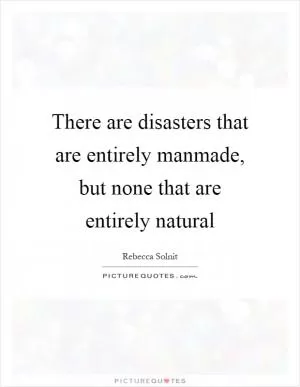
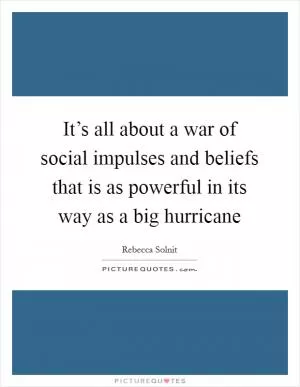


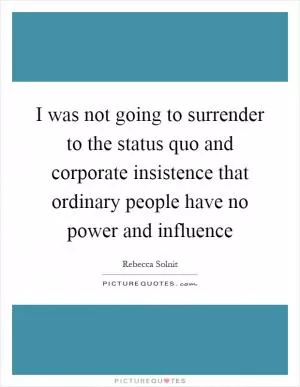

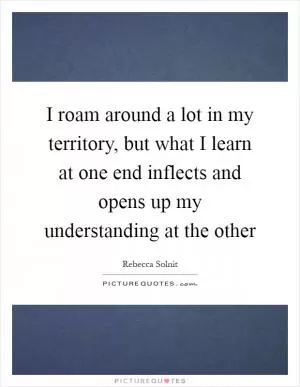
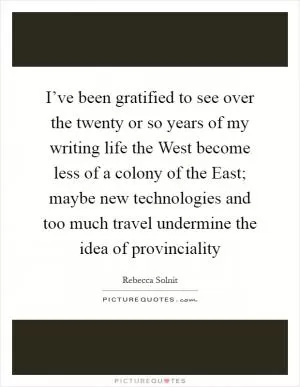
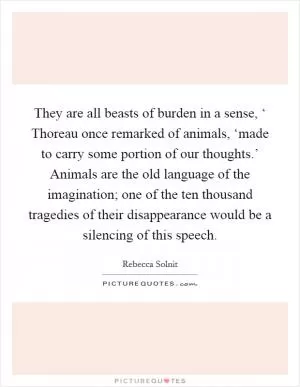
 Friendship Quotes
Friendship Quotes Love Quotes
Love Quotes Life Quotes
Life Quotes Funny Quotes
Funny Quotes Motivational Quotes
Motivational Quotes Inspirational Quotes
Inspirational Quotes